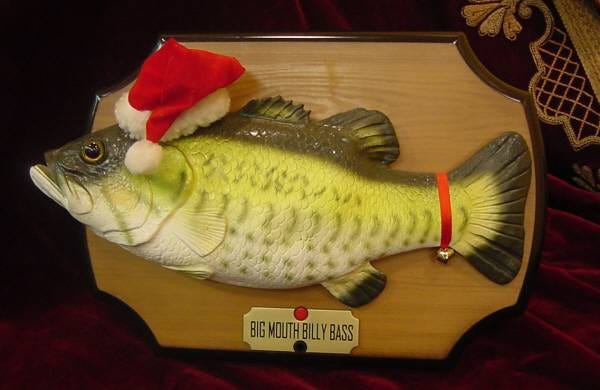The Incarnation & Chintzy Christmas Decor: A Defence


I recently attended a Christmas party held at a prominent, beautiful country club. The trees, which were many, stood tall and elegant; the wreaths were fresh and full. The air smelled of cinnamon and pine and Handel’s Messiah could be heard coming from the keys of a grand piano. “Fit for a King,” read one sign. On the way home, I passed by decorations of all sorts. Some, like the decorations at the club, were hung with care and taste. Others, less so—strings of mismatched lights making their way only half way up the tree; damaged, worn lawn ornaments leaning in exhausted resignment.
When I got home, I started reading Fr. James V Schall’s newest work, Reason for the Seasons. The book, which offers a poetic, playful commentary on the Christian liturgical year is perhaps Schall’s best work, something I don’t say lightly. After reading the below section on Christmas, I realized that the sign “Fit for a King” is just as appropriate a descriptor for those decorations bought two decades ago at Kmart as it is for this year’s tree from Restoration Hardware. Says Schall:
“Christianity is a revelation not to the few but to the many, to everyone: to everyone, whether he knows it or not, whether he likes it or not. The few know how to respond to delight in a sophisticated way. The vulgar, the common, do not. But they do respond—with rough rowdiness, with gossip, with horseplay, with coarseness of speech. They do not know how to respond otherwise. But we are not to think that because of their vulgar manners and ways of expressing things that that over which they rejoice and delight does not exist. They are the ones who wave their spoons and shout when the plum pudding is lighted because they are the very ones who realize the risk that God took in dwelling amongst us.
The feast, which we still celebrate, is brought first to whom? The good tidings are of ‘great joy.’ They come to the shepherds and thence ‘to all people.’ The text does not say ‘unto Joseph and Mary’ is born a Savior. It says that He is born unto the shepherds and to all the people. We should note too that what is born this day in the city of David is not an idea. It is not a political movement. It is not a formula of physics. What is born is a particular Child, ‘which is Christ the Lord.’ The Word, we are told, was made flesh and dwelt amongst us. We are the ‘us’ amongst whom the Lord dwelt and still dwells.
This Incarnation and Nativity into the world is not an abstraction. Nor is it meant for only a few; nor are the elite few even likely to appreciate what happened in the city of David as well as do such folks as shepherds, ‘sore afraid,’ and delightful youngsters whose eyes open wide when the pudding is alight.
The fact that God accepted the danger of the reactions of common folks to his intervention reveals much about God. The risk of God, so to speak—and one that we encounter again at every Christmas—is that we will remain unmoved, dull, unperceptive about the greatest event in the history of our kind, which occurred in a little out-of-the-way place because of that decree of Caesar Augustus.”
Not only does Schall provide cover for chintzy Christmas lights, he also defends the act of gift-giving, what we’re often told is the underbelly of the otherwise holy season. Instead of seeing the act as mere consumerism, Schall shows that it actually incarnates the principal of incarnation, and what could be more appropriate than that? He says:
“About Christmas, an incredible concreteness is found. We most associate Christmas with a gift. A gift is not something we can demand, not something that is due to us. Ultimately, the structure of the universe is first to be understood as a gift.”
Again, I commend the whole book to you, particularly for reading this Christmastide.
The post The Incarnation & Chintzy Christmas Decor: A Defence appeared first on Kuyperian Commentary.

